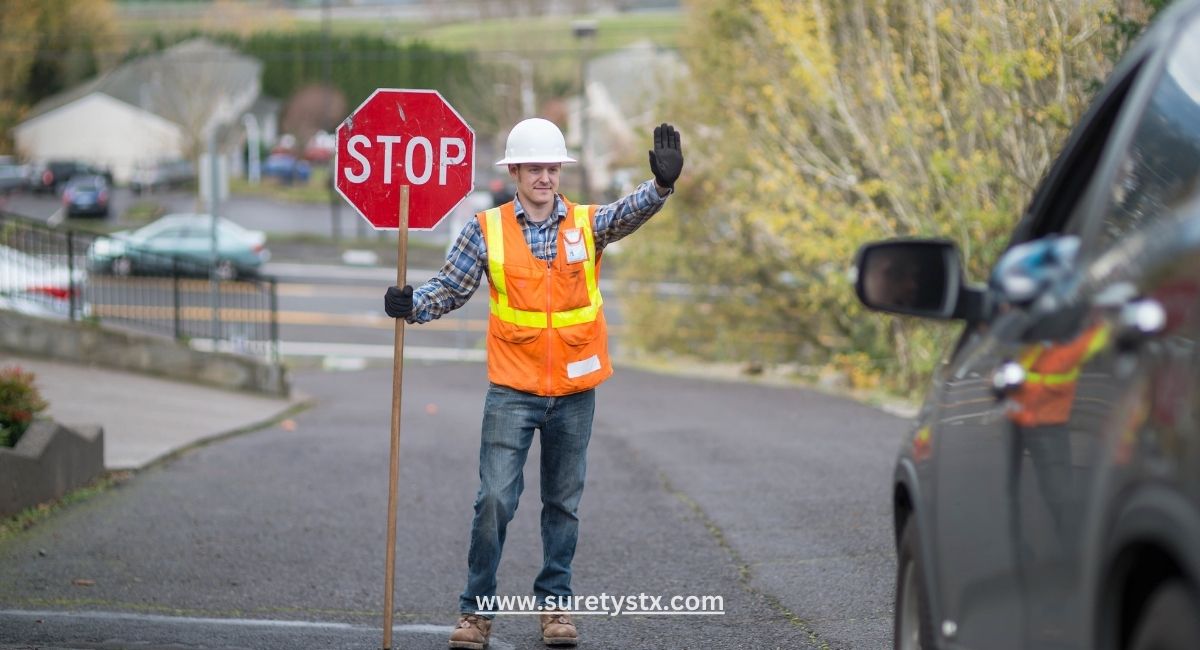Get an Instant Quote on Right of Way Permit Bond
Introduction
From our perspective, contractors and businesses conducting excavation, construction, or utility work within public right-of-way areas in Allen County, Indiana must obtain a Right of Way Permit Bond. This requirement ensures that any work performed within county roads, sidewalks, or public easements meets safety and restoration standards set by local authorities.
The Allen County, IN – Right of Way Permit (Business – $5,000) Bond serves as a financial guarantee that businesses will repair any damage caused to public infrastructure. If a contractor fails to restore roads, curbs, or utilities to their original condition, the county can file a claim against the bond to cover repair costs.
This bond benefits both the county and businesses by:
✔ Protecting public infrastructure from substandard or incomplete work.
✔ Allowing businesses to comply with permit regulations without upfront security deposits.
✔ Ensuring project completion according to local laws and safety codes.
Businesses in Indiana often require additional bonds for their operations. Two examples include:
- AES Indiana – Utility Deposit (for Electrical Service) Bond – Required by businesses needing commercial electrical service without a cash deposit.
- Boone County, IN – Right of Way Permit Bond – Similar to Allen County’s bond, this guarantees proper restoration of roads and public spaces after construction work.
Failing to obtain the Right of Way Permit Bond can lead to delays, permit denials, or penalties for businesses attempting to work in public right-of-way areas.
Common Misconceptions About Right of Way Bonds
We’ve noticed that many contractors and business owners misunderstand how this bond works. Some of the most common misconceptions include:
✔ The bond is not insurance – It does not protect the contractor but rather the county.
✔ It does not eliminate financial responsibility – If a claim is filed against the bond, the contractor must reimburse the surety for any payments made.
✔ Having this bond does not automatically grant a permit – Contractors must still comply with county application processes.
Understanding these details ensures that businesses meet local government regulations while avoiding unexpected financial liability.

Who Requires This Bond and How It’s Regulated
Based on our experience, the Allen County Highway Department mandates this bond for businesses engaging in:
- Excavation work that disrupts public roadways, sidewalks, or curbs.
- Utility installation or repairs requiring street openings.
- Driveway construction connecting private property to public roads.
- Stormwater and drainage system modifications impacting public easements.
The primary regulatory bodies overseeing right-of-way permits and bonds in Allen County include:
- Allen County Highway Department – Issues and enforces right-of-way permits.
- Indiana Department of Transportation (INDOT) – Regulates statewide road construction standards.
Businesses that fail to obtain this bond before starting work may face permit revocation, fines, or legal action for non-compliance.

How the Right of Way Permit Bond Works
What we’ve discovered is that this bond creates a financial agreement between three key parties:
- The Principal – The contractor or business required to obtain the bond.
- The Obligee – The Allen County Highway Department, which enforces compliance.
- The Surety – The bonding company that guarantees financial compensation if the contractor fails to meet permit conditions.
If a contractor abandons a project, fails to restore a roadway, or leaves unsafe conditions, the county can file a claim against the bond. The surety may cover the cost of repairs, but the contractor must reimburse the surety for any payments made.

Steps to Obtain the Right of Way Permit Bond
What we’ve discovered is that securing this bond involves a straightforward process:
- Confirm the bond requirement – Verify with the Allen County Highway Department if a bond is needed for the project.
- Apply with a surety provider – Provide business details and financial information to a licensed bonding company.
- Undergo a financial review – The surety evaluates creditworthiness and business history.
- Receive a bond quote – The bond premium (cost) is a percentage of the bond amount.
- Pay the bond premium – Businesses pay annually to maintain the bond.
- Submit the bond to Allen County – Provide proof of bonding when applying for a right-of-way permit.
Delays in securing this bond can prevent contractors from starting work and lead to project setbacks.

Risks of Not Carrying the Right of Way Bond
In our observation, businesses that fail to obtain this bond face several challenges:
- Permit rejections – The county will not issue a right-of-way permit without proof of bonding.
- Fines and penalties – Unbonded contractors working in right-of-way areas may face legal consequences.
- Liability for damages – Contractors without a bond must pay out of pocket for any roadway or utility damage.
Why Businesses Should Secure This Bond Now
We’ve learned that obtaining this bond provides several benefits:
✔ Legal compliance – Businesses meet Allen County’s permit requirements for right-of-way work.
✔ Financial protection – Ensures the county has funds available for necessary repairs.
✔ Project approval – Accelerates the permit approval process without requiring large cash deposits.
✔ Stronger contractor credibility – Demonstrates financial responsibility and adherence to regulations.
Regulatory Compliance Under Indiana Law
The Allen County, IN – Right of Way Permit (Business – $5,000) Bond falls under Indiana’s public infrastructure regulations. Contractors must adhere to:
- Indiana Code Title 8, Article 23 – Governs state and county highway projects.
- INDOT Right-of-Way Permit Requirements – Applies to state-maintained roads but provides best practices for local compliance.
- Allen County Right-of-Way Ordinances – Establish local guidelines for roadwork, excavation, and utility connections.
Contractors should check the Indiana Department of Transportation (INDOT) and Allen County Highway Department websites for updates on bonding requirements.
Conclusion
We’ve come to appreciate that the Allen County, IN – Right of Way Permit (Business – $5,000) Bond is a critical requirement for contractors working within public infrastructure areas.
Without this bond, businesses risk permit denials, fines, and financial liability for road or utility damage.
Swiftbonds provides fast approvals, competitive rates, and expert guidance to help businesses meet bonding requirements and start projects without delay.
Frequently Asked Questions
Who needs this bond?
Any contractor or business performing excavation, construction, or utility work in Allen County public right-of-way areas must obtain this bond.
How much does this bond cost?
The bond amount is $5,000, but the premium (cost to the business) varies based on credit and financial history.
What happens if a claim is made?
If the contractor fails to restore the work area, the county may file a claim. The surety covers the costs, but the contractor must reimburse the surety.
Can work begin before obtaining this bond?
No. Businesses must submit proof of bonding before receiving a right-of-way permit.
Are there similar bond requirements in Indiana?
Yes. Two additional bonding requirements include:
- AES Indiana – Utility Deposit (for Electrical Service) Bond – Ensures businesses pay their utility bills.
- Boone County, IN – Right of Way Permit Bond – Required for right-of-way work in Boone County.


